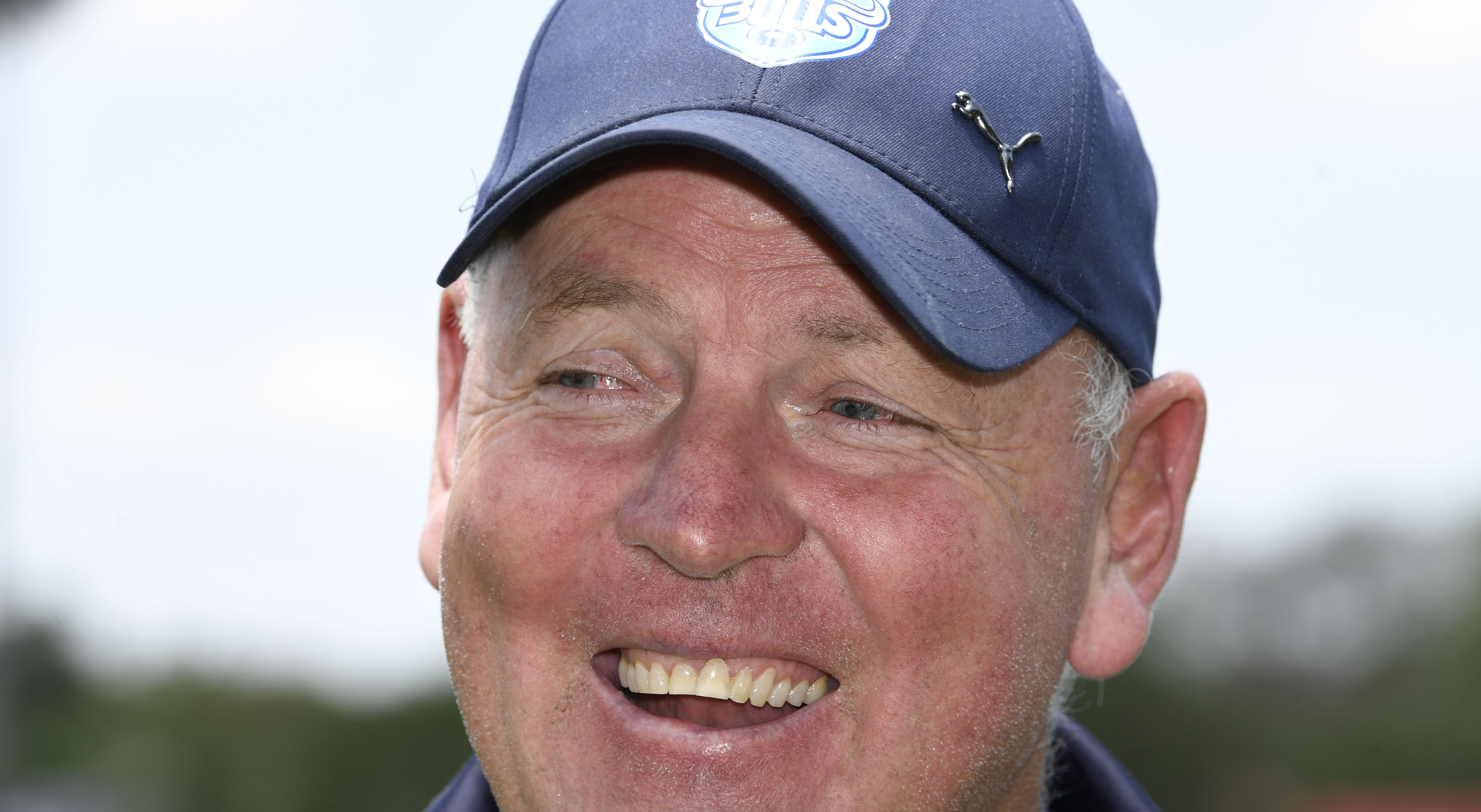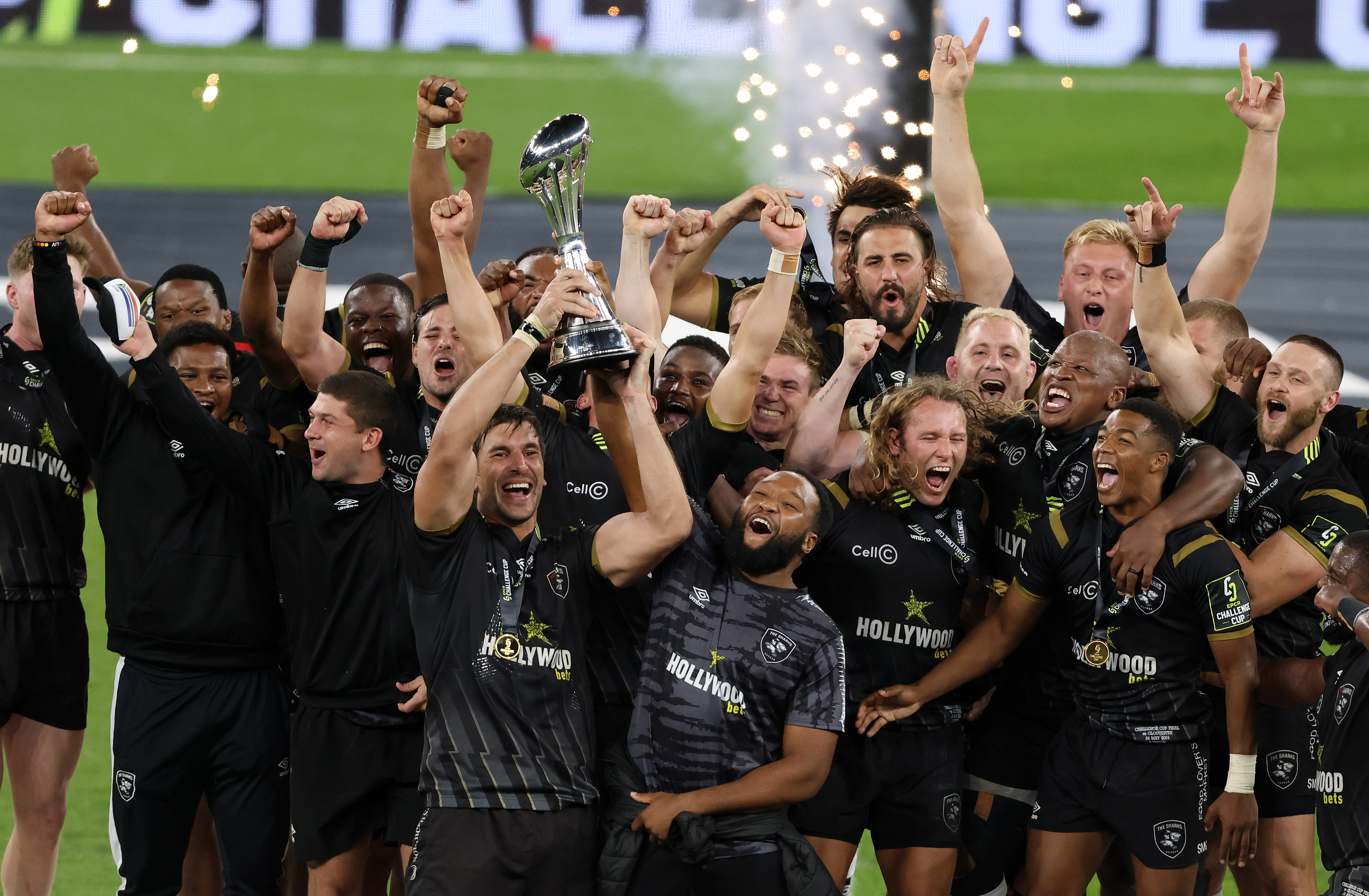Large squads win championships. There is no starting XV to rule them all, and no matchday 23 that can go the distance over an extensive tournament or season.
Over the past seven years, Springbok boss Rassie Erasmus has selected matchday squads with the aim of peaking at the end of big fixtures. With this in mind, he has picked some of his best players – Malcolm Marx, for example – on the bench.
Over the course of big tournaments, Erasmus has rotated 30-odd players to ensure that the team remains fresh and focused. Over the course of a season — as was the case in 2024 — he has used up to 50 players to spread the workload and build depth for the future.
Immediate results remain a priority. While Erasmus blooded 12 new players and experimented with many different combinations over the past six months, he still managed to steer the Boks to 11 wins in 13 Tests.
What can the franchises learn from the Boks, in terms of building a squad and achieving consistent results?
Depth separates contenders and pretenders
Comparing the international schedule with the club season may seem unfair for various reasons. Squad management, however, is even more important at club level, and is particularly relevant at this stage of the year, as the respective franchises gear up for another stint in the all-important Champions Cup.
Champions Cup-winners typically boast quality in depth, as opposed to a handful of superstars across a preferred starting XV. Take Leinster and Toulouse, for example, who contested last season’s final.
 Vodacom Bulls boss Jake White. (Photo: Lefty Shivambu/Gallo Images)
Vodacom Bulls boss Jake White. (Photo: Lefty Shivambu/Gallo Images)
 Suleiman Hartzenberg of the Stormers is tackled during their Investec Champions Cup, Round of 16 match against La Rochelle at DHL Stadium on 6 April 2024 in Cape Town, South Africa. (Photo: Grant Pitcher / Gallo Images / Getty Images)
Suleiman Hartzenberg of the Stormers is tackled during their Investec Champions Cup, Round of 16 match against La Rochelle at DHL Stadium on 6 April 2024 in Cape Town, South Africa. (Photo: Grant Pitcher / Gallo Images / Getty Images)
 Eben Etzebeth of the Sharks on the attack against Mayco Vivas of Gloucester during their EPCR Challenge Cup Final match at Tottenham Hotspur Stadium on 24 May 2024 in London, England. (Photo: Gaspafotos / MB Media / Getty Images)
Eben Etzebeth of the Sharks on the attack against Mayco Vivas of Gloucester during their EPCR Challenge Cup Final match at Tottenham Hotspur Stadium on 24 May 2024 in London, England. (Photo: Gaspafotos / MB Media / Getty Images)
Both are among the most well-resourced clubs on the planet, and both have the means to compete and excel in the Champions Cup and in their respective domestic leagues.
And so, any prediction regarding the winner of the 2024-25 Champions Cup — which commences this weekend and climaxes on 24 May 2025 — should be based on depth in personnel.
At a glance, it appears that a couple of the South African teams — the Bulls and Sharks — have stocked their squads accordingly, and are well placed to realise their objectives in the coming months.
Bulls boss Jake White has the option of fielding an all-Springbok front row of Gerhard Steenekamp, Johan Grobbelaar and Wilco Louw, or the combination of Jan-Hendrik Wessels, Akker van der Merwe and Mornay Smith, players who have featured for the Boks or South Africa A in the past.
In the back row, White might favour an international trio of Marco van Staden, Elrigh Louw and Cameron Hanekom, or another explosive combo featuring former Boks such as Marcell Coetzee and Nizaam Carr.
That’s not to mention the experienced players who have returned from the northern hemisphere in recent seasons, namely Cobus Wiese, Sintu Manjezi and the former Champions Cup winner Jannes Kirsten, or the younger loose forwards like Reinhardt Ludwig and Mpilo Gumede, who have already proved that they belong at this level.
We could keep going with the backs — Willie le Roux, Canan Moodie, Kurt-Lee Arendse (once he returns from a short stint in Japan), Johan Goosen — but you probably get the point.
Much like the Boks, the Bulls have the depth to field two different teams from week to week, while realistically expecting results against top opposition.
All things considered, one would expect the Bulls to host a Champions Cup quarter-final — South African teams cannot host regional European semi-finals at this stage — as well as a United Rugby Championship (URC) semi-final.
Given the franchise’s resources and depth, they should be gunning for the URC title, after last season’s narrow miss against Glasgow Warriors in the decider staged in Pretoria.
Flyhalf stocks lend Sharks more balance
Prior to 2024, the Sharks were a case study in poor management, as a surfeit of Test talent and experience failed to translate into trophies.
The Durban-based side was relegated from the Champions Cup on the back of their poor URC results in 2022-23, and finished 14th on the 16-team URC table in 2023-24.
Fast forward to the present, where the squad boasts a more balanced look, and important recruitments have been made in crucial areas such as the back row and flyhalf.
The Sharks have long had the capacity to field two outstanding players in most positions, but it’s no coincidence that they’ve won the Challenge Cup and Currie Cup since adding flyhalf Siya Masuku and utility back Jordan Hendrikse to their roster — with the former steering them to an inaugural European success via consistent goal-kicking, and the latter nailing a late winner in the recent domestic final.
Siya Kolisi is back in Durban after a failed stint at Racing 92, and is playing some of his best rugby. Manu Tshituka has joined his brother Vincent on the east coast, André Esterhuizen has beefed up the midfield, and Jason Jenkins has supplemented a second-row division that already includes the mighty Eben Etzebeth.
Stormers depleted, Lions divide forces
Injuries have compromised the Stormers’ quest for results in the early stages of the URC, as they’ve lost four of their first six games.
They will have to make do without most of their Boks in the initial rounds of the Champions Cup. Sacha Feinberg-Mngomezulu, Salmaan Moerat, Frans Malherbe, Steven Kitshoff, Damian Willemse, Deon Fourie and Ben-Jason Dixon are currently unavailable, as are the experienced duo of Dan du Plessis and Ben Loader.
The Cheetahs and Lions don’t have as many options. The central franchise may struggle to make it beyond the first round of the Challenge Cup playoffs, and the invitational team’s travel to and from their “home ground” in Amsterdam may eventually take its toll.
Meanwhile, the Lions appear to be embracing the challenge of splitting their squad and targeting specific matches, all with a greater goal in mind.
In the lead-up to their Challenge Cup opener against the Ospreys in Swansea on Sunday, 12 of the Lions’ best players travelled back to Johannesburg in order to prepare for the round two clash against Pau at Ellis Park.
The six-day turnaround between games has been cited as the primary reason for splitting the squad. South African rugby fans will remember that Erasmus used a similar strategy when he fielded a “second-string” side against Scotland at the beginning of November, before unleashing his best combination against England six days later.
The Lions may not win both matches, but they may come through the next fortnight with a positive net result.
 Shane Jennings of Connacht is tackled by the Bulls' Cameron Hanekom during their United Rugby Championship match at Dexcom Stadium on 30 November 2024 in Galway, Ireland. (Photo: Tyler Miller / Gallo Images)
Shane Jennings of Connacht is tackled by the Bulls' Cameron Hanekom during their United Rugby Championship match at Dexcom Stadium on 30 November 2024 in Galway, Ireland. (Photo: Tyler Miller / Gallo Images)
If the Lions don’t beat the Ospreys — who have lost five of their first seven URC games this season — they will hope for a losing bonus point at the very least. If they go on to beat Pau in Joburg, possibly with a try-scoring bonus point, they could well finish this block of Challenge Cup matches with six log points.
The Bulls, Sharks and Stormers may have similar ambitions in the early rounds of the Champions Cup. One win and a losing bonus point would be a fair outcome for both teams, especially when considering the quality of the opposition.
The Bulls will face Saracens in London this week, while the Sharks will travel to Leicester in round two. Both teams will in all likelihood target the home matches – against Northampton Saints at Loftus Versfeld and Exeter Chiefs at Kings Park – as must-wins.
The Stormers will face the additional challenge of playing their first home fixture outside of the Mother City, as their traditional home ground in Green Point will play host to the Cape Town Sevens this weekend.
If the Stormers lose to Toulon in Gqeberha, the subsequent fixture against Harlequins in London will become a must-win — and that may be a tall order for John Dobson’s limited and injury-ravaged squad. DM




 Shane Jennings of Connacht is tackled by Cameron Hanekom of Vodacom Bulls during the United Rugby Championship match between Connacht and Vodacom Bulls at Dexcom Stadium on November 30, 2024 in Galway, Ireland. (Photo by Tyler Miller/Gallo Images)
Shane Jennings of Connacht is tackled by Cameron Hanekom of Vodacom Bulls during the United Rugby Championship match between Connacht and Vodacom Bulls at Dexcom Stadium on November 30, 2024 in Galway, Ireland. (Photo by Tyler Miller/Gallo Images)